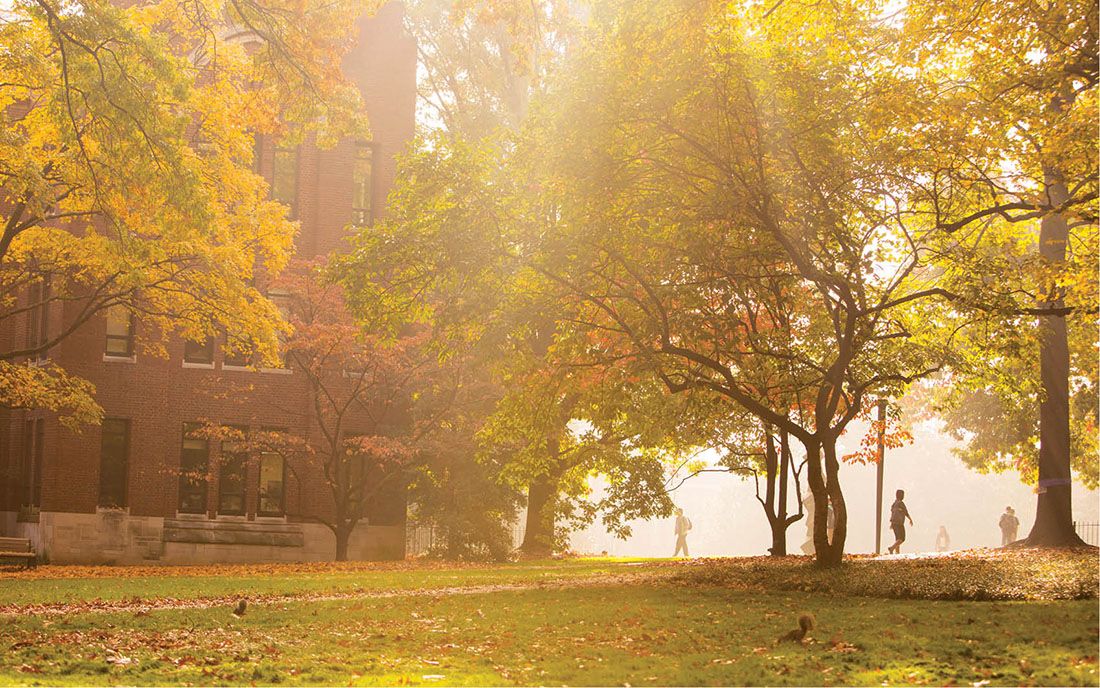
In 1985, the Sunday Tennessean classified ads included a job listing for an Editorial Assistant I at Vanderbilt University. The advertised pay, $6.06 an hour, was low even by 1985 standards, substantially less than I was making at another job that didn’t suit me. The job description for the Vanderbilt position was short on specifics but required typing 60 words per minute. I thought I might manage 45 wpm if I worked up a head of steam and the words were short.
The following Monday I found my way to the Peabody Administration Building, where Vanderbilt Human Resources was then located. The woman who took my application told me she didn’t quite know what an Editorial Assistant I did, but that there had been a hundred applicants for the job. I took a typing test and, by some fluke, managed to type 63 words per minute. By another stroke of luck, I listed my friend May Dean Eberling as a reference.
May Dean belonged to the same hoary women’s literary club—Shandygaff—as Vanderbilt’s director of alumni publications, Jean Bass Crawford, ’47. I’ve always believed that connection changed the course of my life.
I began work at Vanderbilt in January 1986, the same week as the Space Shuttle Challenger disaster. From the first day I knew I had found my place. Alumni Publications was housed in a cramped brick bungalow at the corner of 18th and Edgehill avenues. There were 10 of us—a friendly, loquacious bunch—and we grew to be close friends. We bounced story ideas off each other and lunched together and socialized outside office hours and got to know each other’s families.
Nelson Bryan, BA’73, was editor of the Peabody Reflector (and later was Vanderbilt Magazine’s class notes and sports editor). Whenever any of us needed something heavy moved, Nelson was our man—our only man. It was Nelson and nine women.
More than typing ability, the position of Editorial Assistant I required sturdy legs. In that pre-fax, pre-Internet age, I walked everywhere and got to know the campus well—except the maze of Medical Center North, where I invariably lost my way and still do.
I graduated from making photocopies and transcribing interviews to writing and editing—first for the Vanderbilt Nurse, later the Owen Manager (now Vanderbilt Business) and ultimately Vanderbilt Magazine.
At first I was afraid of sounding stupid when I was assigned interviews with accomplished alumni and celebrated professors, but then it dawned on me: This is your chance to ask anything! I interviewed governors and presidents’ daughters and Nobel Prize winners, and I learned fancy words like hermeneutics and heuristic.
For nearly 30 years now, Vanderbilt has enriched my life immeasurably. I am retiring this spring—in the same year that Vanderbilt Magazine celebrates its first 100 years of publication.
Curmudgeon alert: Nowadays, it is possible to produce a magazine without venturing out of one’s office, without meeting alumni or professors face to face, or to watch Commencement on a computer screen instead of walking across campus and soaking up the joy and human drama of graduation—or Match Day or Move-In Week. I hope the next Vanderbilt Magazine editor will come equipped with a good pair of walking shoes.
Thank you, reader, for your encouragement and your intelligent, civilized criticism. Vanderbilt has taught us both well.
—GAYNELLE DOLL, EDITOR